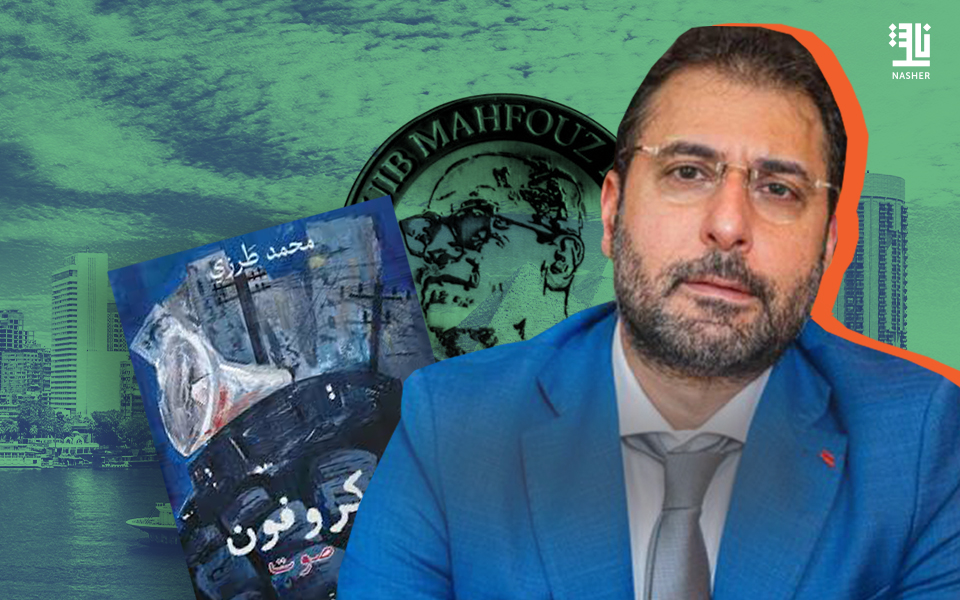The Lebanese novelist Mohammed Tarazi has won the 2024 Naguib Mahfouz Medal for his 2023 novel Muted Microphones. He received the award at a ceremony in Cairo hosted by the prize’s organisers the American University in Cairo Press (AUC Press).
The book’s publishers, AUC Press, describe the book as “a black comedy”. The novel opens in Tyre, Lebanon in 2019, in a setting reeling under “the spread of COVID-19, the scarcity of household essentials, and the aftermath of the Beirut Port explosion.” Prize judge Ahmed Taoibaoui notes that muted microphones contrast with loudspeakers that “ring out with the slogans of the hegemonic political party in power”. He added that the novel “resonates with the speech of these silenced voices.”
The novel is set in a cemetery near the sea and tells the story of Sultan, a young man eager to leave Lebanon but who finds himself “trapped between two cemeteries”.
At the ceremony Tarazi said that the inspiration for the novel was a quote by Mahfouz that he came across in a newspaper: “‘A person’s homeland is not the place where they were born, but the place where all their attempts to escape end.’” Tarazi added that this quote “perfectly wraps up the life of the novel’s protagonist, Sultan— a young man who did everything he could to survive the graveyard in which he was born.”
Chair of the judges Sarah Enany said that the judges had chosen Muted Microphone for its “deep metaphor and imagery and powerful characters, as well as its smooth narrative style.” It was a novel that would speak to all those “who live in cities that stifle souls and kill dreams”.
Judge Yusuf Rakha added: “Tarazi’s novel combines the metaphor of the loudspeaker as a means of disinformation and oppression with that of the undertaker as a witness of the kind of intrigue that results in death and destruction but also, however unwillingly, a kind of participant in it. With a maximal cast of characters and gripping drama, the narrative achieves a truly architectural level of precision, sacrificing neither realism nor inventiveness in the process. In gripping, absorbing, and profound tones, makes a powerful, complex statement about the cost of politics for the ordinary Arab citizen today.”
Tarazi said: “I wrote this novel while surrounded by microphones that stifled my voice and bound my tongue. My people were bankrupt, torn between graves and crammed onto migrant boats bound for death. Hospital doors were shut to the sick, while the leader’s entourage stockpiled medicine and hoarded life’s other essentials. I wrote in silence, tears streaming down my face, as if I were one of the mute characters I brought to life in the novel. Perhaps it was this silence that struck a chord with the distinguished members of the committee, who chose to grant me the highest honor a writer can aspire to “a voice”. This voice came in the form of a medal bearing the name of the great writer, Naguib Mahfouz, placing me among the remarkable creators recognized for their literary excellence and unwavering stand against hatred and tyranny. Thank you—and thank you to everyone here this evening for sharing these joyful moments with me.”
The Naguib Mahfouz Medal for Literature, established in 1996, “recognizes the best contemporary novel published in Arabic in the past two years.” It grants both a $5,000 cash prize and the offer of an English translation of their work, published by AUC Press’s Hoopoe imprint.







